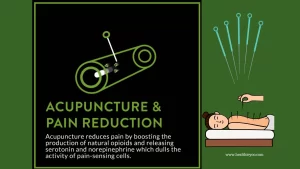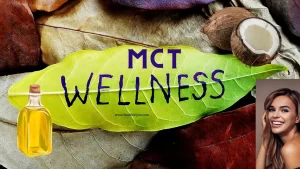Holistic health and wellness is a process of healthcare that regards the person’s health in its entirety – not just their bodily symptoms or ailments. This means addressing the mental, emotional, social, and spiritual aspects of health in addition to the physical. For nursing students, especially those taking up online accelerated second-degree BSN programs embracing a holistic approach can enhance patient care by providing a well-rounded understanding of healthcare needs.
Why Is Holistic Health and Wellness Important?
Traditionally, Western medicine has focused on treating diseases through medication and surgery. While this approach has been successful in many cases, it often overlooks other aspects of health that may contribute to illness.
Holistic health recognizes that everything in our body is interconnected and aims to identify the underlying causalities of disease rather than just treating signs. Understanding holistic health can help nursing students identify potential risk factors for patients beyond their presenting symptoms. It also allows for more collaborative and comprehensive sustenance plans that address all facets of a person’s well-being.
The Five Aspects of Holistic Health and Wellness
To grasp holistic health and wellness and its applications in patient care, it’s crucial to comprehend its five main facets:
Physical
This encompasses an individual’s physical body and functions, including nutrition, exercise, rest, hygiene, and injury prevention.
Emotional
This entails understanding one’s feelings and emotions while developing effective stress management techniques.
Mental
A sound mind involves cognitive abilities like perception, memory retention/recall, information processing (focus), and analysis. Personal experiences, developmental milestones, and environmental factors influence mental well-being.
Social
Social well-being revolves around building relationships, effective communication, and harmonious coexistence with others. This aspect considers how an individual interacts within society.
Spiritual
This aspect explores an individual’s sense of purpose, life’s meaning, and connection to something greater than themselves.
The Importance of Incorporating Holistic Approaches in Nursing Education
The evolving field of nursing recognizes the value of holistic approaches in healthcare. Holistic care addresses an individual’s physical, emotional, mental and spiritual well-being, providing nurses with a comprehensive understanding of patients’ health.
Integrating holistic concepts into nursing education benefits both patients and nurses. It enables nurses to create personalized, holistic treatment plans for all patient well-being factors, resulting in improved outcomes and stronger nurse-patient connections.
Additionally, nurses gain self-care techniques, such as mindfulness and stress management, to navigate the demanding healthcare environment. Cultural competence and cognition of social determinants of health are essential components of holistic nursing education, ensuring patient-centered and culturally sensitive care.
Benefits of Utilizing Holistic Practices in Nursing
Holistic practices in nursing are becoming increasingly popular as healthcare professionals recognize the numerous benefits they bring to patient care. These practices focus on treating the person, including their biological, cognitive, emotional, and spiritual needs.
By considering all aspects of a patient’s well-being, holistic approaches can improve health outcomes and a more positive healthcare experience for patients and nurses. Below are some key benefits of utilizing holistic practices in nursing:
Fosters Patient-Centered Care
Incorporating holistic practices in nursing promotes patient-centered care, where individual needs, preferences, and values guide treatment plans. Holistic care focuses on improving overall well-being rather than just managing symptoms or diseases.
Addresses Root Causes
Holistic approaches aim to identify and address underlying root causes of health issues beyond superficial symptom management. For example, using methods like acupuncture or massage therapy to target the root cause (e.g., muscle tension) can effectively and sustainably alleviate chronic pain.
Emphasizes Preventative Care
Holistic practices encourage preventative care by prioritizing overall wellness through healthy habits such as proper nutrition, exercise, and stress management. This proactive approach helps reduce the incidence of chronic diseases and enhances patient health.
Enhances Patient Outcomes
Holistic care, addressing physical, mental, emotional, and spiritual needs, improves health outcomes. It supports natural healing processes, enhances overall quality of life, and may reduce the need for certain medications.
Lowers Healthcare Costs
By emphasizing preventative care and addressing root causes, holistic nursing can reduce healthcare costs. Early intervention prevents the development of more serious and costly health issues.
Strengthens Nurse-Patient Relationships
Holistic practices facilitate deeper nurse-patient relationships by considering all aspects of well-being. This enhances understanding, trust, communication, and treatment adherence.
Encourages Self-Care
Holistic nursing also promotes self-care among healthcare professionals. Nurses practicing holistically are more likely to prioritize their well-being, contributing to their overall health and effectiveness in patient care.
Holistic Self-Care for Nursing Students: Tips and Techniques
Holistic self-care is vital for nursing students to maintain well-being across physical, mental, emotional, and spiritual dimensions. Balancing demanding coursework and clinical experiences necessitates self-care to ensure adequate care provision in the future.
Consider these holistic self-care strategies:
Prioritize Physical Health
Maintain a healthy body through regular exercise, nutritious meals, adequate sleep, and routine check-ups to manage stress and sustain alertness during intense study and clinical hours.
Mindful Breathing
Combat stress and overwhelm with conscious breathing. Close your eyes, focus on your breath, and inhale deeply for five counts, hold for two counts, and exhale slowly for seven counts. Repeat this to enhance calmness and mindfulness.
Embrace Relaxation Techniques
Incorporate relaxation practices like yoga or meditation to reduce stress, boost well-being, enhance sleep quality, and improve concentration.
Unite with Nature
Benefit from spending time outdoors, contributing to physical and mental well-being.
Integrating Holistic Therapies into Patient Care
In conclusion, the use of holistic therapies in patient care is growing, recognizing the importance of taking care of a person’s complete well-being. While nursing education mainly focuses on proven practices and medicines, holistic therapies offer a broader view of caring for patients.
Holistic therapies try to find the reasons behind illnesses by considering a person’s lifestyle, environment and personal beliefs, bringing balance to their mind, body and spirit. This approach can improve health outcomes by creating harmony within the individual. To prepare nursing students for a holistic approach, there are chances to learn about different therapies like acupuncture, massage, nutrition counseling, aromatherapy and more through courses and workshops provided by healthcare organizations. Elective courses in nursing programs also give insights into combining traditional and alternative methods for better patient results.
As healthcare keeps changing, nurses adopting holistic approaches play an increasingly important role. By embracing these methods, nursing students and healthcare professionals can help create a future where patient care is effective, kind, and tailored to each person. This shift promises a healthier and brighter future for all.
Disclosure – This is an external post and the views expressed are of the sponsor/author/third party and not of Healthieyoo’s editorial team. We disclaim any and all liability to any party, company, or product for any direct, indirect, implied, punitive, special, incidental, or consequential damages arising either directly or indirectly due to the use of content published in this article. The publishers of this website take no responsibility for any health issues, personal injury, death, disability, or any other harm due to the content on our website or any advice or opinion expressed on our website. Please consult your healthcare professional before making any decision related to your health. Please also read our medical disclaimer”.
Related Posts

How Psychiatric Mental Health Nurse Practitioners (PMHNPs) are Transforming Mental Healthcare

The Power of Prevention: Exploring the Vital Impact of DNP Nurses on Disease Management

How to Embrace Creative Wellness to feel Happier and Healthier


MCT Wellness Reviews, Ingredients, Side Effects – Is Dr. Gundry MCT Wellness a Hoax?


